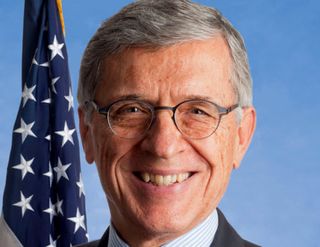Wheeler Defends Title II Decision in Senate

FCC chairman Tom Wheeler vigorously defended the process by which the FCC reached its decision to reclassify Internet access as a Title II common-carrier service.
That came in a Senate Commerce Committee FCC oversight hearing during which he was grilled by Sen. Ron Johnson (R-Wisc.), chair of the Senate government oversight committee.
Johnson's office this week released a report -- following a year-long investigation -- that alleged the FCC had been less than independent in its net-neutrality decision and had switched gears at the urging of the White House and without sufficiently notifying the public and stakeholders about the shift in direction.
Johnson asked Wheeler whether he was aware of some of the staff's concerns about a "thin record" for supporting the Title II move, which was detailed in the report. Wheeler said he hoped the lawyers were "constantly second-guessing each other and me." He said there was fulsome debate and discussion.
Asked why he had prepared a public notice to beef up the record, but did not pull the trigger, Wheeler said the FCC had hit pause for the purpose of "enriching the record," and that was because the FCC knew "the Big Dogs are going to sue" and wanted to make sure "all the i's were dotted and the t's crossed."
Wheeler said the FCC had not circumvented the ex parte notification requirement about communications with White House staffers. He conceded there had been meetings and e-mails, but said that the only time ex parties were required was when there was "substantial significance" to the communications and they were intended to affect the outcome of the decision.
Johnson said the FCC turned on a dime after the President came out in favor of Title II, so they appeared to be significant conversations. Wheeler pointed out the White House had filed an ex parte in connection with the President's statement.
Multichannel Newsletter
The smarter way to stay on top of the multichannel video marketplace. Sign up below.
During his questioning, Sen. Ed Markey (D-Mass.) followed up, giving Wheeler a chance to point out that communications between the White House and independent agencies are not unusual, and are in fact typical -- "the White House, Congress and everybody," Wheeler said -- and that, in fact, other Presidents have been known to contact FCC chairs, pointing to a meeting between former FCC chair Mark Fowler and President Ronald Reagan.
Wheeler said the FCC had used the same process followed by both Democratic and Republican FCCs in crafting the order.
Contributing editor John Eggerton has been an editor and/or writer on media regulation, legislation and policy for over four decades, including covering the FCC, FTC, Congress, the major media trade associations, and the federal courts. In addition to Multichannel News and Broadcasting + Cable, his work has appeared in Radio World, TV Technology, TV Fax, This Week in Consumer Electronics, Variety and the Encyclopedia Britannica.

